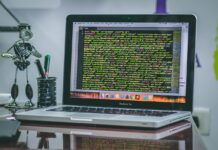Crazy Rich Asians, one of a Netflix movie that was shot in Singapore clearly demonstrated the state of the city. What used to be an island that hosts 20 million visitors a year now turns into a place of quietness due to the COVID-19 pandemic?
Nonetheless, the city could host a few health leaders before the major pandemic attack in an attempt to talk about challenges and how we can fight the COVID-19 disease. Even at such times of disaster, there are a few takeaways the best HR leaders can learn from the Singaporeans today, some of which are addressed below:
The forecast
Earlier in January 2020, a meeting was hosted at the new Center for Healthcare Innovation (CHI) for health leaders. The major purpose of the meeting was to explore different collaboration by getting in more research into the core context i.e. healthcare. But due to the news about the COVID-19 outbreak, the discussions at the meeting were disrupted. Even though there were no cases detected in Singapore at that point of time, emergency meetings were already scheduled since the busy Chinese New Year was nearing. A simple idea was that the news has started spreading as wildfire and business leaders had already been alerted. It is crucial to consider overseas events while dealing with businesses across the globe.
The planning strategy
Let us walk down the memory lane, soon after the SARS outbreak that took place, employers across East Asia learned their lessons. This resulted in having organizations plan in response to the pandemic attack – mitigation measures and risk management plans were all in place. They have learned well after the SARS attack – nobody could log-in to the system without having their temperatures checked, no system log-in without travel declarations, issuing personal thermometers to employees, and barricading for health screening before entering the physical site. Such moves and mitigation measures should have been planned by the ones sitting with the authority like the HR Leader roles.
It is seen that the city learned from its past mistakes. Although no proper planning can keep you safe from any unknown events however, this approach did benefit the people living in Singapore.
Proper communication channel
Communication is mandatory for any type of crisis. It needs to be centralized, whether it is at the national level or just a random business process. Most Singapore businesses including education planning have travel declarations. As business leaders, we all must have well-planned travel declarations.
If offices commence, employees are requested to take a check on the temperatures twice a day and report it to the office administration or update it in their smartphone app. However, of other employees fail to follow any kind of safety precautions, the containment area gets compromised.
Devise a holistic stakeholder management approach
Though the focus is drawn toward CHRO and HR leaders implementing new strategies to ensure the workplace is contained, the virus is looking for the next host to devour. It becomes a challenge in taking a holistic view of human interaction within the work environment. Leaders will need to keep a constant check on whether safety measures have been followed or not. This includes catering services, cleaning the cafeteria, customers, suppliers, security services, etc.
Splitting of teams
Ever since the pandemic struck companies have been forced to operate with fewer staff or split shifts of their workers to avoid any type of infection. For instance, Team A gets to work from home for a week while Team B works from home the following week. Also, if a person gets infected from one team, only half of the team gets affected. However, at places where physical effort and securing of files take place, splitting the team members becomes mandatory.
As the pandemic continues to evade our lives, business leaders and HR leaders need to address the pandemic the way the Singaporeans have done it.









